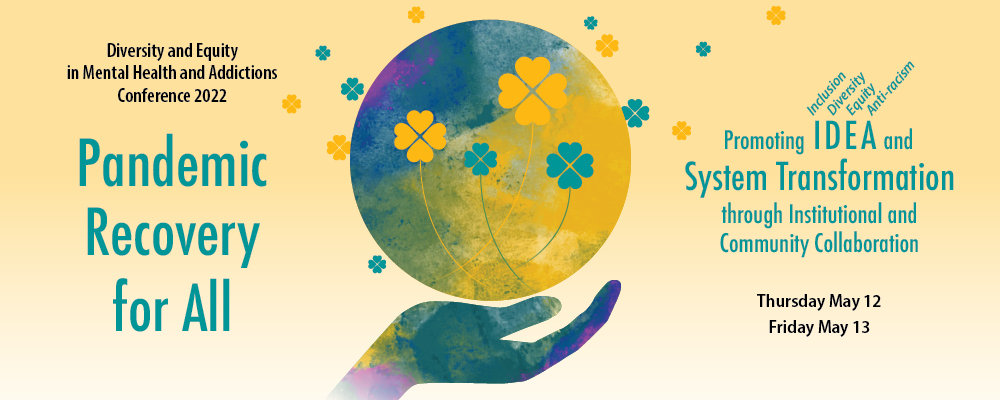WORKSHOP VIRTUAL MENTAL HEALTH SERVICES FOR IMMIGRANTS AND REFUGEES: ENSURING ACCESS FOR ALL

Michaela Hynie (she/her), PhD/Professor, Department of Psychology/Centre for Refugee Studies, York University
Helen Cao (she/her), Senior Leader Volunteer, Hong Fook Mental Health Association
Abstract
The delivery of mental health services virtually (on-line by voice or video, by phone, e-mail, or apps) is a way of increasing access to services for underserved populations. For immigrant and refugee newcomers however, the rapid move of mental health services from in-person to virtual modalities during COVID-19 also created new access barriers. This workshop reports findings from a national study of virtual mental health care access for refugees during COVID-19 in terms of WHAT works for WHOM and WHEN from the perspective of both service users and providers. We will share what we have learned about facilitating virtual mental health care access for newcomers, hear a case study of a successful virtual program for seniors, and lead a discussion of recommendations for designing more accessible virtual mental health services for the future.
Leaning Objectives:
At the end of this presentation, participants will be able to:
- Identify potential challenges in accessing virtual care for newcomers
- Reflect on some of the challenges for providers offering virtual care.
- Reflect on the different considerations when deciding to recommend virtual care
- Describe and apply strategies to enhance access to virtual mental health services
References
- Byrow, Y., Pajak, R., Specker, P., & Nickerson, A. (2020). Perceptions of Mental Health and Perceived Barriers to Mental Health Help-Seeking Amongst Refugees: A Systematic Review. Clinical Psych. Review, 75, 101812.
- Geller, S. (2020). Cultivating Online Therapeutic Presence: Strengthening Therapeutic Relationships in Teletherapy Sessions. Psych. Quarterly, 34, 687-703.
- Harst, L., Lantzsch, H., & Scheibe, M. (2019) Theories Predicting End-User Acceptance of Telemedicine Use: Systematic Review. Journal of Med. Internet Research, 21.
- Hynie, M., Jaimes, A., Oda, A., Rivest-Beauregard, M., Perez Gonzalez, L., Ives, N., Ahmad, F., Kuo, B.C.H., Neil Arya, N., Bokore, N., & McKenzie, K. (under review). Assessing Virtual Mental Health Access for Refugees during COVID-19 Using the Levesque Client-Centered Framework: What Have We Learned and How Will We Plan for the Future?
- Titov, N., Hadjistavropoulos, H.D., Nielssen, O., Mohr, D. C., Andersson, G., & Dear, B. F. (2019). From Research to Practice: Ten Lessons in Delivering Digital Mental Health Services. Journal of Clin. Med. 2019, 8, 1239.
